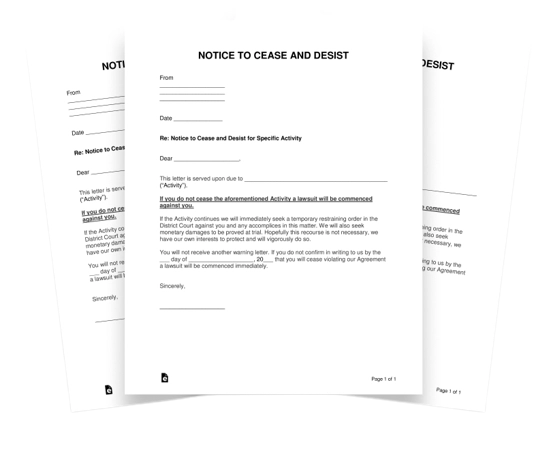Manufacturing Agreements

Download a Free Manufacturing Agreements template
Created and approved by the experts at CMI Group for your use.

Download a Free Manufacturing Agreements template
Created and approved by the experts at CMI Group for your use.
Manufacturing agreements are now a crucial tool for businesses looking to outsource production or grow their operations in the fast-paced business climate of today. However, given the complexity of supply networks and the global nature of manufacturing, companies must manage a number of risks in order to be successful. The many possible pitfalls of manufacturing agreements, which range from intellectual property disputes to supply chain disruptions, can have severe repercussions for businesses.
It is crucial that businesses move proactively to reduce these risks and safeguard their interests. The best practices for risk mitigation in manufacturing contracts will be discussed in this blog post with an emphasis on important topics like confidentiality, supply chain risk management, intellectual property, and supplier selection. Businesses can reduce the risks connected with manufacturing deals and guarantee the success of their operations by adhering to these best practices.
Get a Manufacturing Agreements template created by CMI’s expert Lawyers.
Navigating Intellectual Property Rights In Manufacturing Agreements
For businesses in the manufacturing sector, intellectual property (IP) is a crucial resource because it frequently forms the basis of their competitive edge. To avoid having their innovations misappropriated or used without permission, companies must be careful to safeguard their IP rights when entering into manufacturing agreements. This part will discuss some of the most important factors to take into account when navigating IP rights in manufacturing contracts and safeguarding your innovations.
Patents, trademarks, copyrights, and trade secrets are just a few examples of intellectual property rights that may be important to production contracts. Patents safeguard inventions and grant the owner exclusive rights to the creation for a predetermined amount of time. Brand names, logos, and other unique symbols that distinguish goods and services in the marketplace are protected by trademarks. Original works of authorship, such as written or creative works, are safeguarded by copyrights. Trade secrets safeguard private information that gives a business a competitive edge, like formulas, designs, or client databases.
To protect your IP rights in manufacturing agreements, it is important to take a proactive approach. Here are some strategies to consider:
- Clearly define ownership of IP rights in the manufacturing agreement, including any licenses or royalties that may be due to the owner of the IP.
- Require the manufacturer to agree to confidentiality and non-disclosure obligations to protect any trade secrets or confidential information.
- Conduct due diligence on the manufacturer to ensure they have the necessary expertise and resources to produce the product without infringing on the IP of others.
- Monitor the manufacturer’s compliance with the manufacturing agreement to ensure that they are not using the IP without permission or infringing on the IP of others.
Any company seeking to outsource production must make the best manufacturer selection. The quality of your goods, the effectiveness of your operations, and ultimately the success of your company will all be significantly impacted by the manufacturer you select. Therefore, it is crucial to carefully and thoroughly assess prospective manufacturers before making a choice.
There are a number of important elements to take into account when assessing potential manufacturers. To make sure they have the knowledge and resources needed to create your goods to the necessary specifications, you should first assess their capabilities. This entails assessing their technological know-how, tools, and infrastructure. Additionally, think about their track record of creating products comparable to yours as well as their capacity to satisfy any particular specifications you may have.
Another important aspect to take into account when choosing a maker is capacity. It's important to confirm that the manufacturer can handle your manufacturing requirements in terms of volume and deadlines. To make sure they can satisfy your requirements, you should assess their capacity planning procedures, lead times, and production schedules.
The manufacturer's image is equally important to capabilities and capacity. To assess their track record in terms of quality, dependability, and customer support, you should do your homework. This entails looking over their certifications, such as ISO or other standards applicable to their business, as well as their references and client testimonials. A reputable maker will have a history of on-time, high-quality product delivery and superior customer care.
You should also take into account elements like price, payment schedules, and contract terms and conditions when negotiating manufacturing agreements with prospective manufacturers. Although price is a crucial element, it shouldn't be the only one used to make a decision. To ensure that you are receiving a good value for your money, it is crucial to strike a balance between cost and quality.
In conclusion, picking the correct manufacturer is an important choice that necessitates careful consideration and due diligence. You can choose a partner who can produce high-quality products on time and support your business objectives by assessing potential manufacturers based on their capabilities, capacity, and reputation.
Free 15-minute consultation for Manufacturing Agreement with our experienced lawyers.
Supply Chain Risk Management In Manufacturing Agreements
As they involve numerous suppliers, logistics companies, and other third-party partners, supply networks are intricate and multifaceted. As a result, a number of factors, such as natural catastrophes, geopolitical unrest, problems with quality control, and labor conflicts, can cause supply chain disruptions. As a result, it is crucial for companies to effectively manage supply chain risks in order to guarantee business continuity and reduce the impact of disruptions. In this part, we’ll look at some important tactics for reducing supply chain risks in manufacturing contracts.
Common Supply Chain Risks In Manufacturing Agreements
Strategies For Mitigating Supply Chain Risks
The Role Of Contingency Planning In Supply Chain Risk Management
Contingency planning is a critical component of supply chain risk management. By developing contingency plans, businesses can minimize the impact of disruptions and ensure continuity of operations. Contingency plans should include:
Incorporating Value-Based Metrics In Supplier Agreements
The most important factor in a normal supplier agreement is the pricing. Businesses that only concentrate on price, however, might pass up important advantages that come from value-based measures. Measures of supplier success that go beyond price, such as delivery performance, quality, sustainability, and innovation, are known as value-based metrics. Businesses can make sure that their supplier partnerships are not just about cost savings but also about driving value by including these metrics in their supplier agreements. Here are some key points to consider when incorporating value-based metrics into supplier agreements:
Value-based metrics are measures of supplier performance that go beyond pricing, including delivery performance, quality, sustainability, and innovation. These metrics can be used to incentivize suppliers to improve their performance in areas that are critical to the business.
Businesses can gain a number of advantages by incorporating value-based metrics into their supplier deals. These measures can motivate suppliers to place a higher priority on quality, sustainability, and innovation, which will result in higher-quality goods and services. Value-based measures can encourage cooperation and ongoing development as both parties work together to accomplish common objectives. Examples of value-based measurements and how supplier agreements can make use of them
On-time delivery, defect rate, environmental impact, and addition to product innovation are a few examples of value-based metrics. By offering bonuses or other rewards for hitting certain goals, these metrics can be used to encourage suppliers to better their performance in these areas.
When incorporating value-based metrics into supplier agreements, businesses should start by identifying the key areas that are important to their operations. They should then define specific metrics that align with these areas and set targets that suppliers must meet to receive bonuses or other incentives. The agreement should also include provisions for tracking and reporting supplier performance in these areas.
Businesses must make sure that their supplier agreements are fiscally viable in addition to using value-based metrics. Value-based metrics and price considerations must be balanced in order to make the supplier partnership profitable for both parties
Customer Testimonial
Our Happy Clients
 2024-05-2710/10 for Professionalism, Due diligence and very easy to deal with. Definitely recommended 😊 Tina does whatever she could to ensure your best interest is represented 👍🏻 The CMI Legal team is a team you can trust. There is nowhere else I’d rather be going to for legal advice, you soon will learn why, too.
2024-05-2710/10 for Professionalism, Due diligence and very easy to deal with. Definitely recommended 😊 Tina does whatever she could to ensure your best interest is represented 👍🏻 The CMI Legal team is a team you can trust. There is nowhere else I’d rather be going to for legal advice, you soon will learn why, too. 2024-05-24Tina Tang is doing excellent service job as a profesional lawer and provide valued information about property purchase issue.Thank you so much,we are appreciated to your skilled help and hope to cooperate with your esteemed company,current residential living apartment 506/2-4 Culworth Ave Killara should be put in market,we hope Tina Tang will provide support as well.thank you so much. Joe Shi
2024-05-24Tina Tang is doing excellent service job as a profesional lawer and provide valued information about property purchase issue.Thank you so much,we are appreciated to your skilled help and hope to cooperate with your esteemed company,current residential living apartment 506/2-4 Culworth Ave Killara should be put in market,we hope Tina Tang will provide support as well.thank you so much. Joe Shi 2024-02-22CMI are very knowledgeable regarding Intellectual Property Law. I spoke with John & he helped me talk through my options & potential outcomes. He was very considerate & explained everything in detail, which I appreciated greatly.
2024-02-22CMI are very knowledgeable regarding Intellectual Property Law. I spoke with John & he helped me talk through my options & potential outcomes. He was very considerate & explained everything in detail, which I appreciated greatly. 2024-02-12I am highly grateful for all the assistance I was provided by CMI Legal during my home purchasing process. Tina has guided me through 2 separate purchases and she has been professional and prompt with personalized advice. I would be completely overwhelmed were it not for her legal expertise.
2024-02-12I am highly grateful for all the assistance I was provided by CMI Legal during my home purchasing process. Tina has guided me through 2 separate purchases and she has been professional and prompt with personalized advice. I would be completely overwhelmed were it not for her legal expertise. 2024-02-01I really recommend the legal service here! Tina is my lawyer and she is very helpful for all the works, and she always communicates with me with all the details very well. I will definitely work with her again in the future.
2024-02-01I really recommend the legal service here! Tina is my lawyer and she is very helpful for all the works, and she always communicates with me with all the details very well. I will definitely work with her again in the future. 2023-12-05Working with Tina through all steps of our property purchase was such a delight. She provided frequent updates at every step of the process so we always knew where everything was up to. We were always provided with clear and concise instructions and never left wondering what to do next. Would highly recommend!
2023-12-05Working with Tina through all steps of our property purchase was such a delight. She provided frequent updates at every step of the process so we always knew where everything was up to. We were always provided with clear and concise instructions and never left wondering what to do next. Would highly recommend! 2023-10-03Thank you for your Excellent support your understanding to our request help us with the process and an fantastic advice to our Family Business, thank you CMI Legal Pty Ltd Team at Chatswood,NSW for all the effort to put to focus for all the details to help and support us. We are incredibly grateful to you for your help.Thank you for the outstanding SERVICE to us and your Customer. Thank you to your nice receptionist for great customer services.. receptionist
2023-10-03Thank you for your Excellent support your understanding to our request help us with the process and an fantastic advice to our Family Business, thank you CMI Legal Pty Ltd Team at Chatswood,NSW for all the effort to put to focus for all the details to help and support us. We are incredibly grateful to you for your help.Thank you for the outstanding SERVICE to us and your Customer. Thank you to your nice receptionist for great customer services.. receptionist 2023-10-03Professional and down to earth, willing to listen to my issues without prejudice. Highly recommendGoogle rating score: 4.8 of 5, based on 49 reviews
2023-10-03Professional and down to earth, willing to listen to my issues without prejudice. Highly recommendGoogle rating score: 4.8 of 5, based on 49 reviews






